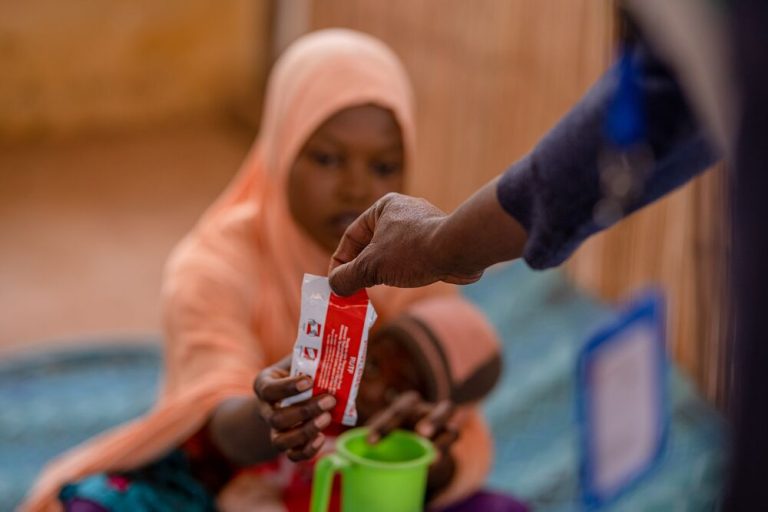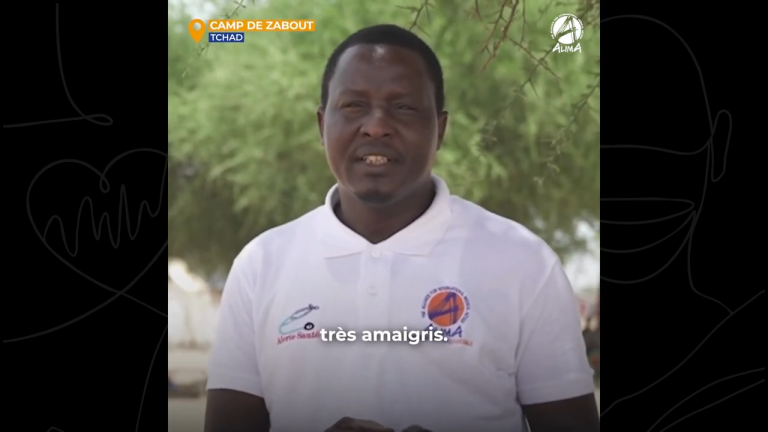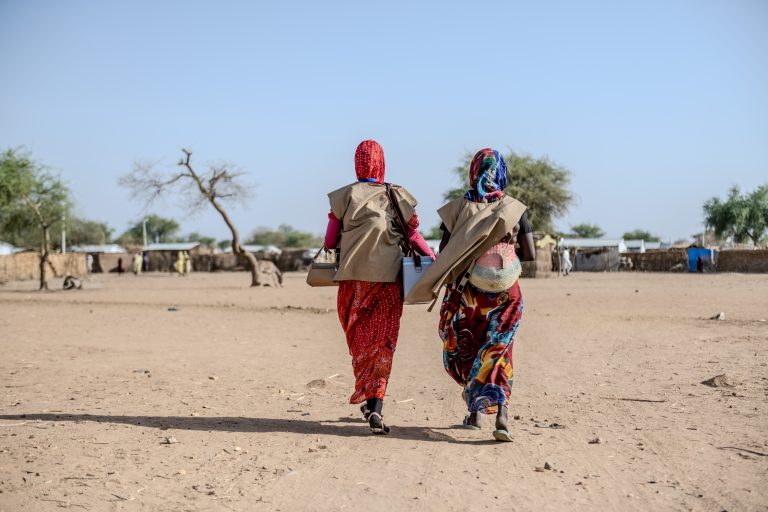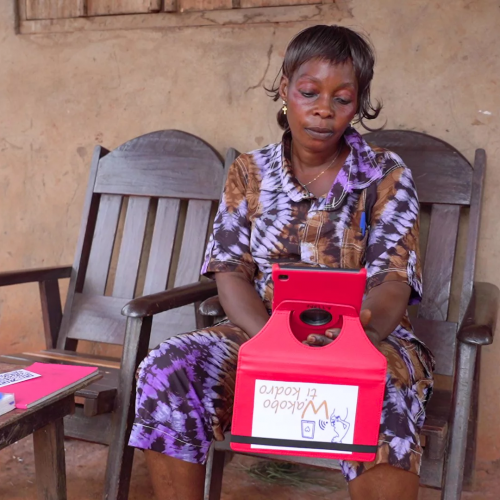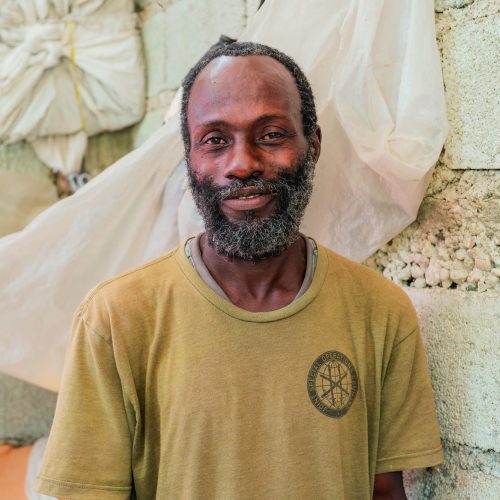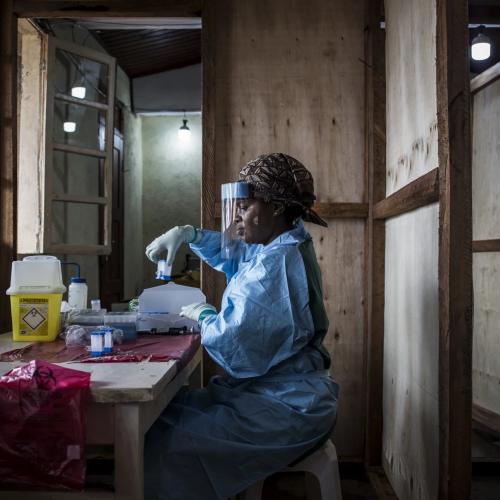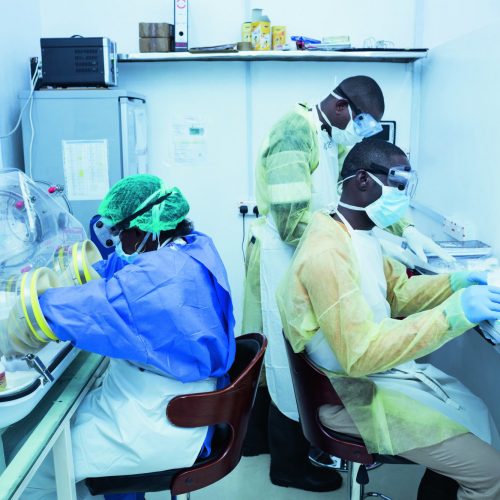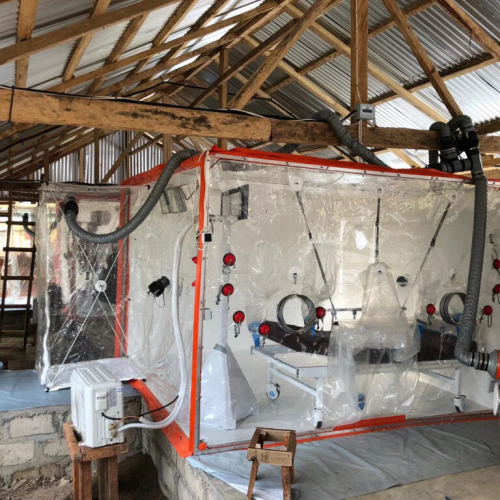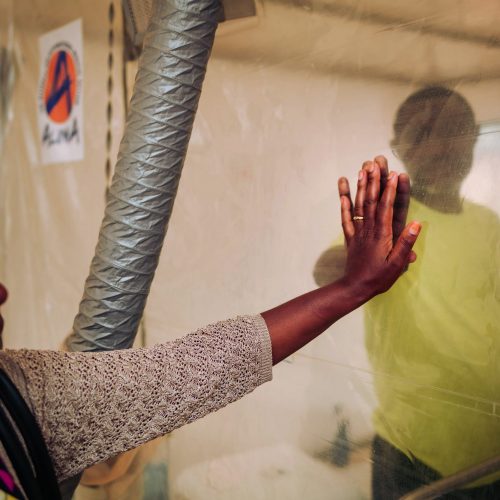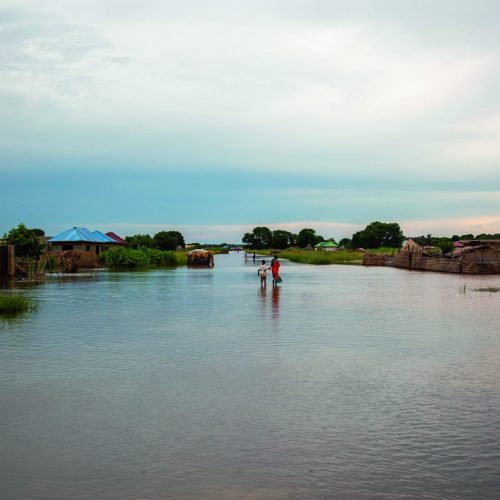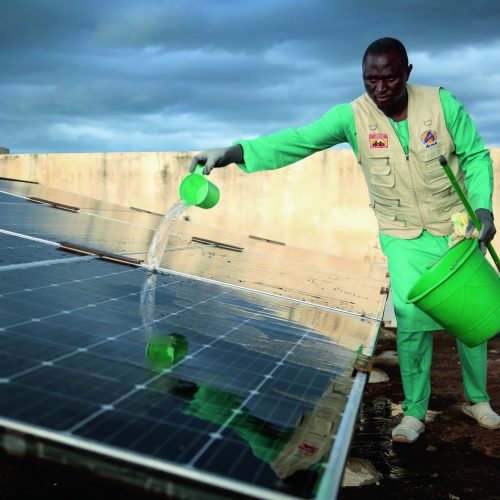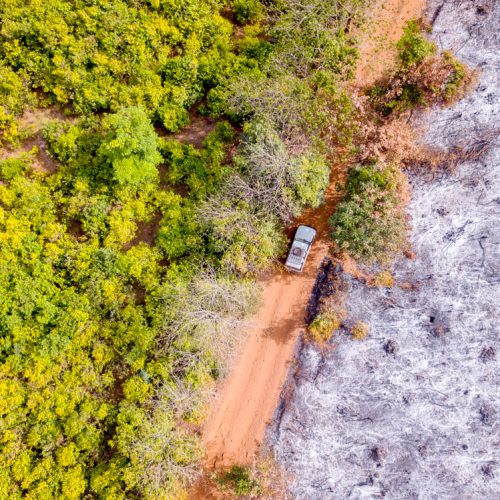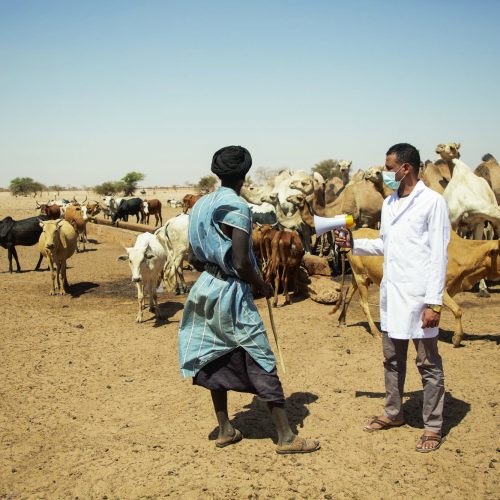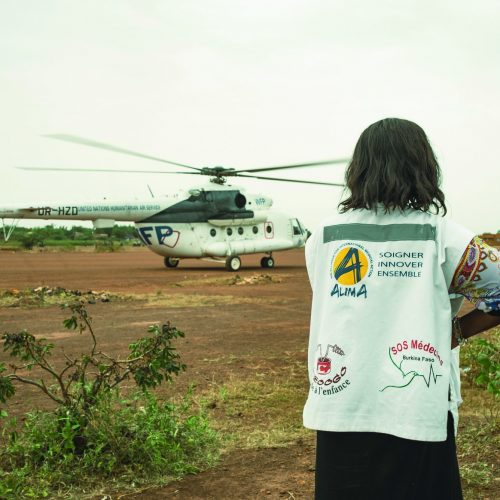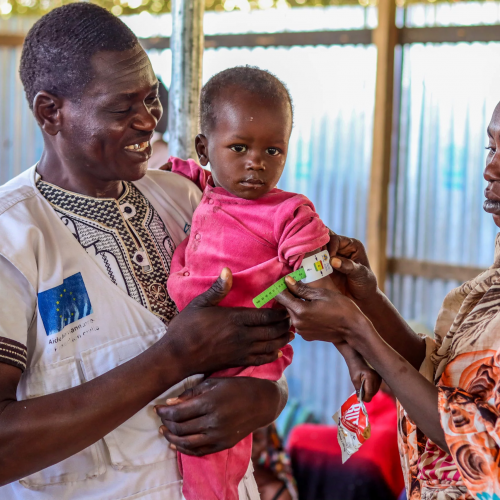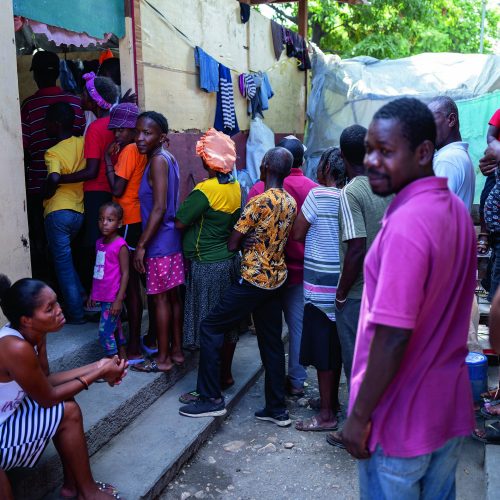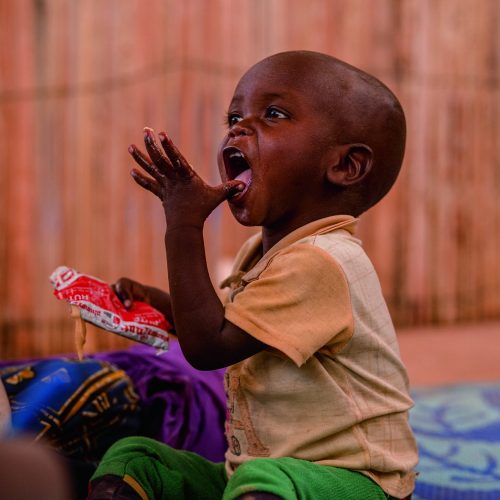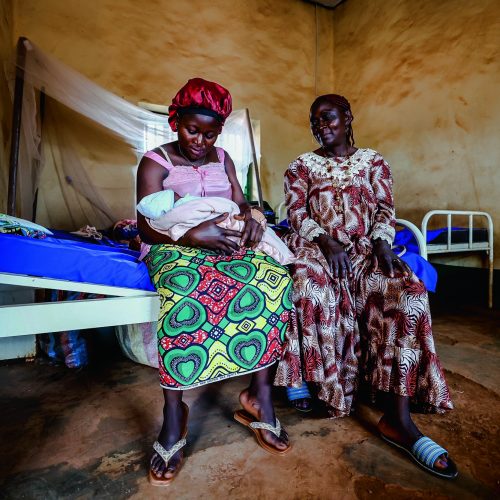NIGERIA
Maiduguri
In northeastern Nigeria, in Maiduguri, more than one million internally displaced persons (IDPs) live within host communities and in camps.
In August 2016, ALIMA opened a clinic near the informal Muna IDP camp to meet the needs of children under five. The teams provide medical care, as well as detect and treat malnutrition.
Since January, ALIMA has recorded close to 3,400 consultations, admitted nearly 900 children suffering from severe malnutrition and referred 24 children requiring emergency care to an intensive nutritional treatment center.
Since December 2016, 3,800 mothers have been trained to screen their children for malnutrition in order to get proper treatment early on and avoid hospitalization.
“The MUAC bracelet is a simple and important tool in conflict situations,” explains Matthew Cleary, General Director for ALIMA. “The colored band that measures a child’s upper arm circumference allows mothers themselves to monitor the nutritional status of their children, even in areas where access to healthcare is difficult.” The clinic now offers maternal healthcare and family planning counseling.
“The majority of deaths occur within 24 hours of childbirth, which is why it is essential to accompany mothers,” says Matthew Cleary.
Monguno
In Monguno, in Borno State, some 150,000 people have settled in a dozen makeshift camps.
“Newly displaced families are exhausted and are completely destitute. They need shelter, water and food,” said Mathieu Kinde, field coordinator for ALIMA in Nigeria.
ALIMA offers primary health care and supports children in Monguno who are suffering from malnutrition. Since January, ALIMA teams conducted more than 5,000 consultations and cared for 1,100 severely malnourished children. Since December 2016, ALIMA began providing intensive care to malnourished children at the Mother and Child Health Center.
Within ALIMA’s nutritional program, 8 percent of kids who come to the clinic are found to have severe acute malnutrition (SAM) and 24 percent have found to have moderate acute malnutrition (MAM).
“We are continuing the screening efforts because malnutrition rates are still higher than the emergency threshold,” said Mathieu Kinde.
CAMEROON
According to the Office of the United Nations High Commissioner for Refugees (UNHCR), there are nearly 87,000 refugees and 174,000 internally displaced persons in Cameroon’s Far North region. The majority of the displaced are dispersed among host communities in areas that receive little humanitarian assistance.
Makary
Nearly 35,000 displaced people live in the district of Makary where few health clinics are functioning. As the number of refugees and IDPs continues to increase, the need for humanitarian response is also increasing, in order to improve access to health care in the region. “The conflict affects the local population already weakened by food insecurity,” adds Dr Ali Ouattara, Deputy operational director for ALIMA.
Since December 2016, ALIMA has supported nine health centers in Makary health district and also provides pediatric and nutritional care to both IDPs and host community members in Makary health district.
Children under the age of five are treated at the Makary District Hospital, where the teams also provide primary health care. About 2,100 consultations and 250 pediatric admissions have been recorded since January 2017.
“We are treating many children suffering from respiratory infections who arrive in severe respiratory distress,” said Dr Ali Ouattara.
Mokolo
Since May 2016, ALIMA has been supporting Mokolo District Hospital, located some 20 kilometers from the Nigerian border. Mokolo District Hospital is equipped with an intensive nutritional center where children suffering from severe acute malnutrition are treated in emergency cases. A pediatric service provides free hospital care for children under the age of five. This structure is vital as it is the reference hospital for nearly 60,000 Nigerian refugees living in the Minawao camp. The teams have registered almost 550 hospitalizations since January 2017.
Photos: Fati Abubakar / ALIMA

